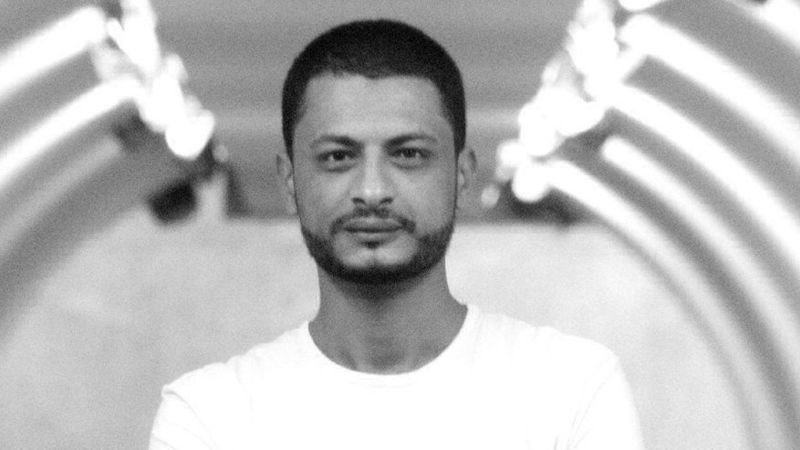Egyptian poet gets three years in prison for allegedly insulting soldiers

An Egyptian military court has sentenced a poet to three years in prison for writing a book of poetry allegedly criticizing the Egyptian army, his lawyer told Egyptian media on Tuesday.
Galal al-Behairy was found guilty of blasphemy, publishing “false news” and “insulting the military establishment” and fined $ 560.
His lawyer, Mokhtar Mounir, said he would appeal the decision, adding that his client was also facing a simultaneous trial at a civilian court over the same charges.
Behairy had previously written two books, published in 2015 and 2017.
He was arrested on 3 March after the release of Balaha , a song that indirectly poked fun at Egyptian President Abdel Fattah al-Sisi, the former defense minister who came to power after a military coup in 2013.
The singer who performed Balaha , Ramy Essam, is currently in exile in Sweden. "Balaha" is a derogatory nickname for Sisi, in reference to a character from a classic Egyptian movie known for being a compulsive liar. "O Balaha, four years have finally passed in disgrace / With all your gang boys to that darkest jail, I wish you may rot in such a place," Essam sings.
Behairy had planned to publish his latest collection of poetry, The Finest Women on Earth , this year.
The title of the book was interpreted by the prosecution as alluding to Egyptian soldiers, who are referred to in a hadith by Prophet Muhammad as “the finest soldiers on earth”. The Arabic title of Behairy's book uses the term niswan for "women," a word which has derogatory connotations in Egypt implying weakness and submissiveness.
However, Behairy defended himself against accusations of sexism in a statement released in May , in which he exalted women's nurturing and support of men.
"This title does not refer in any way whatsoever to the Egyptian soldiers," he wrote. "It is rather a recognition of the value of women and of their good deeds in this world. Every soldier, man, fighter, scientist, and inventor is the result of a mother's education, a wife's embrace and a daughter's innocence."
In a show of support for Behairy, writers' association PEN International published online a poem written by Behairy while in prison.
In A Letter from Tora Prison, Behairy writes:
"'We are not afraid.
We are not afraid. '
We saw a country
rise from sleep
to trample a pharaoh
and cleanse the age
of the cane and cudgel.
We saw a country sing:
those were no slave songs,
no harbingers of doom, rather
songs fitting
for a new kind of steel. "
A panel of UN human rights experts condemned Behairy's detention ahead of the sentencing, and dismissed the charges against him as “dubious”.
“We recall that all individuals have the right to participate in varied information exchanges, to contribute to artistic expression, and to take part in cultural life and in the development of their society, including through political debate and expression of opinion and dissent, without fear of sanction or reprisals, ”they said .
Behairy's sentence comes as an Israeli court sentenced Palestinian poet Dareen Tatour for incitement over a poem she shared on social media .
Middle East Eye propose une couverture et une analyse indépendantes et incomparables du Moyen-Orient, de l’Afrique du Nord et d’autres régions du monde. Pour en savoir plus sur la reprise de ce contenu et les frais qui s’appliquent, veuillez remplir ce formulaire [en anglais]. Pour en savoir plus sur MEE, cliquez ici [en anglais].

